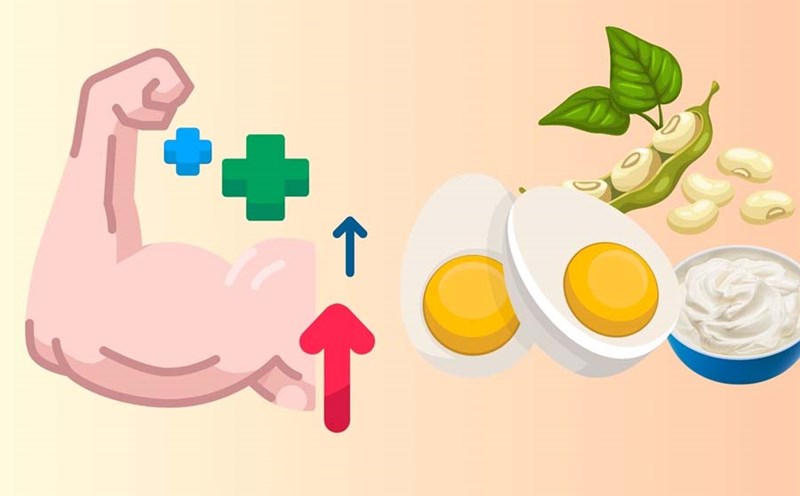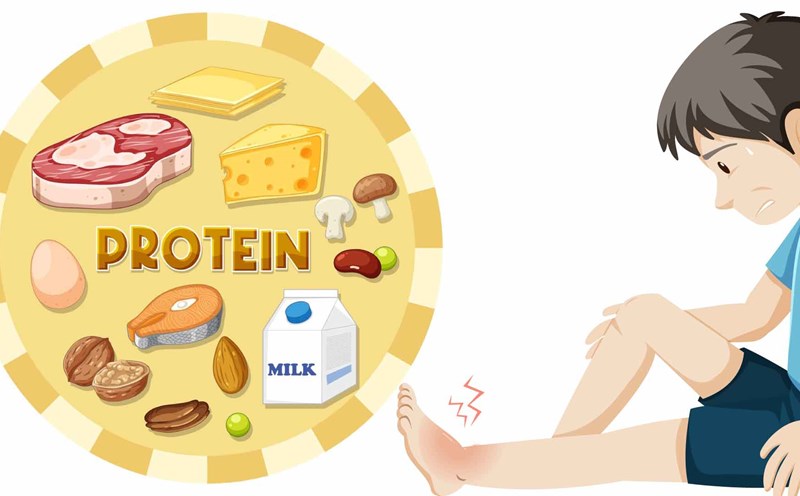Protein is an essential nutrient that helps build and repair muscles, especially important for people who practice sports, pregnant women or patients in need of health recovery.
However, like everything in nutrition, consuming too much protein does not mean higher efficiency, on the contrary, it can lead to many serious health consequences.
When benefits become a burden
consuming too much protein over a long period of time can impair the function of waste metabolic organs such as the liver and kidneys, leading to long-term damage, says Dr Eileen Canday, Head of Nutrition and Dietetics, Sir HN Reliance Foundation Hospital, India.
She warned that excessive protein intake is also associated with increased risk of cardiovascular disease, vascular damage, osteoporosis, and in some cases, increased risk of cancer, especially in people who consume a lot of processed meat.
According to the recommendation of the Indian Medical Research Council (ICMR), a healthy adult only needs 0.8-1 grams of protein/kg of body weight per day. Higher consumption levels need to be prescribed by nutritionists, especially for groups such as athletes, kidney patients or cancer patients.
Warning signs
According to expert Edwina Raj, Head of Clinical Nutrition, Aster CMI Hospital (Bangalore, India), the body often sends clear signals when you consume too much protein. Here are five signs not to be missed:
1. Dehydration: The kidneys have to work too hard to process protein waste, causing you to be often thirsty, have little urine or have dark urine.
2. Digestive problems: Eating too much protein often leads to a lack of fiber, which can easily cause constipation, bloating and intestinal discomfort.
3. Scented breathing: A diet rich in protein and low in carbs can easily push the body into a state of ketosis, causing bad breath despite good hygiene.
4. Weight gain: Unused excess protein will be stored as fat, causing uncontrolled weight gain.
5. kidney tension: Signs such as swelling in the limbs and face may signal kidney damage, especially in people with a history of kidney disease.
Balance is the key to sustainable nutrition
Protein is an indispensable companion in the journey to a healthy life, but abuse will turn benefits into risks. It is best to consult a nutritionist to build a diet suitable for your physical condition and personal needs, instead of "taking in as much as possible".









